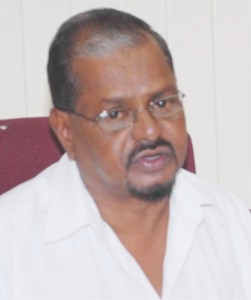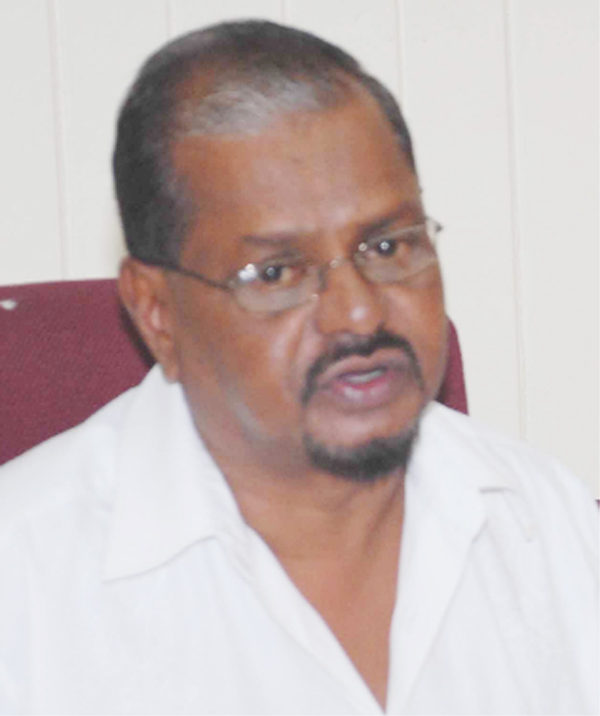– proposes mixed PR and first past the post voting
The government yesterday tabled a bill to facilitate the holding local government polls later this year, under a hybrid proportional representation (PR) and first past the post electoral system that emphasises accountability to the voters.

Local Government Minister Kellawan Lall presented the Local Authorities (Elections) (Amendment) Bill 2009, which was referred to a special select committee. “I hope we wouldn’t take more than three weeks to deal with this issue,” Lall told the Assembly, after emphasising the upcoming polls.
Local government elections have been due since 1997.
The bill, which seeks to amend the Local Authorities (Elections) Act, Chapter 28:03, is one of the pieces of legislation agreed to by the bipartisan Task Force on Local Government Reform before that body was scrapped last month. Head of the Presidential Secretariat Dr Roger Luncheon told a press briefing yesterday that Cabinet had agreed to the tabling of the bill, while it continued deliberation over the holding of polls. He explained that in the face of “the likely unavoidable delay” in the conclusion of promised bilateral talks between President Bharrat Jagdeo and Opposition Leader Robert Corbin, Cabinet agreed to the immediate tabling of the bill and for it to be sent to a parliamentary select committee for wider consideration. He said the Cabinet also agreed on the subsequent tabling of other bills affecting the local government system, including the Local Government Commission Bill, the Municipal and District Council (Amendment) Bill, the Fiscal Transfers Bill and the Local Government Bill. He said it is likely that they would also go to select committee but could not say whether all the bills would be placed before the Parliament before the polls.
According to the bill’s explanatory memorandum, it “seeks to set the legal framework for the holding of local government elections this year” under “a mixed system of proportional representation and first past the post and shall provide for the involvement and representation of individuals and voluntary groups in addition to political parties.” The new elector system also affirms that “there shall be accountability to electors.”
The bill proposes the insertion of a new section, 38 A, which introduces a mixed system (50-50) of proportional representation and first past the post to be used within each local authority area – one of the major agreements of the Task Force.
Under the proposal, members to be elected under the proportional representational (PR) system shall be elected on a party list or voluntary group list, while members to be elected for the first past the post system are to be elected for a party, a voluntary group or as an individual whether or not nominated by a party or a group.
The new section also sets out that each local authority area shall be divided into constituencies to elect members of the municipalities and neighbourhood democratic councils. Further, it says the Guyana Elections Commission (GECOM) shall determine the areas comprising a constituency as, by order, it would be empowered to combine or subdivide one or more electoral divisions to form a constituency for the purpose of electing members of that local authority.
Additionally, the bill proposes to empower the Local Government Minister to determine the local government authority area where the election shall be held as well as the number of members to be elected by each system, provided that they are even.
Also proposed in the bill is the insertion of another new section, 44 A, which sets out the criteria each list must satisfy. According to the proviso, each voluntary group or political party would be allowed to submit lists containing the names of persons qualified to be elected for each area. While the party or group could duplicate a name on both lists, subject to a number of conditions, a candidate’s name would only be allowed to appear once on each list. Further, all candidates would have to be registered voters resident in that local authority area.
A third new section, 44 B (1), provides for voting and allocation of seats for both systems, allowing every voter to have one vote for each, while a fourth new section, 71 A, spells out the requirements of a ballot paper for a constituency. Section 94, also new, has subsections dealing with the procedure for counting of votes.
Also, Section 105 would be amended by the bill to include a new subsection 3 providing for GECOM to have custody of ballot boxes with their locks and keys rather than the police.

